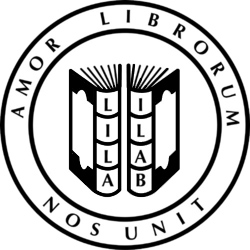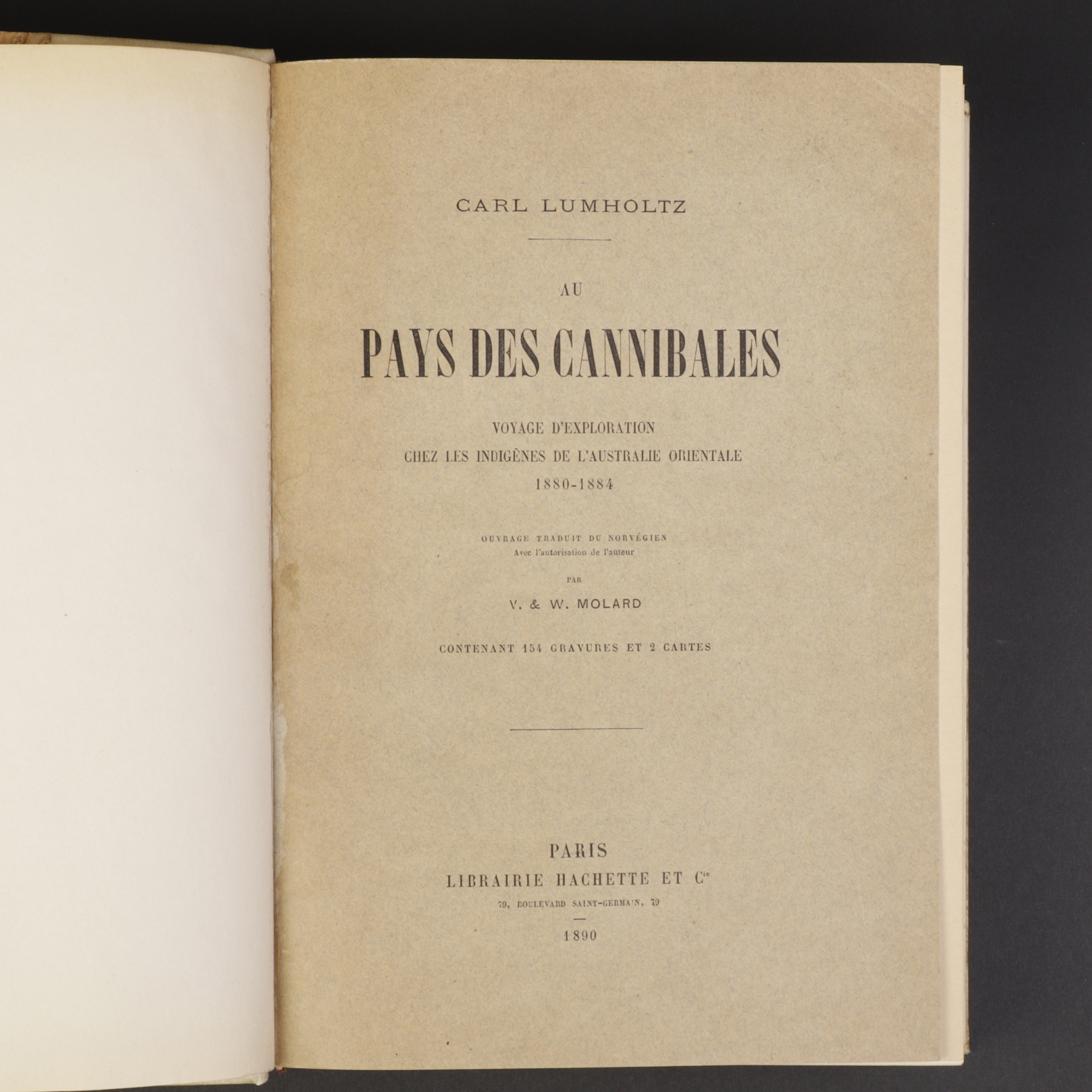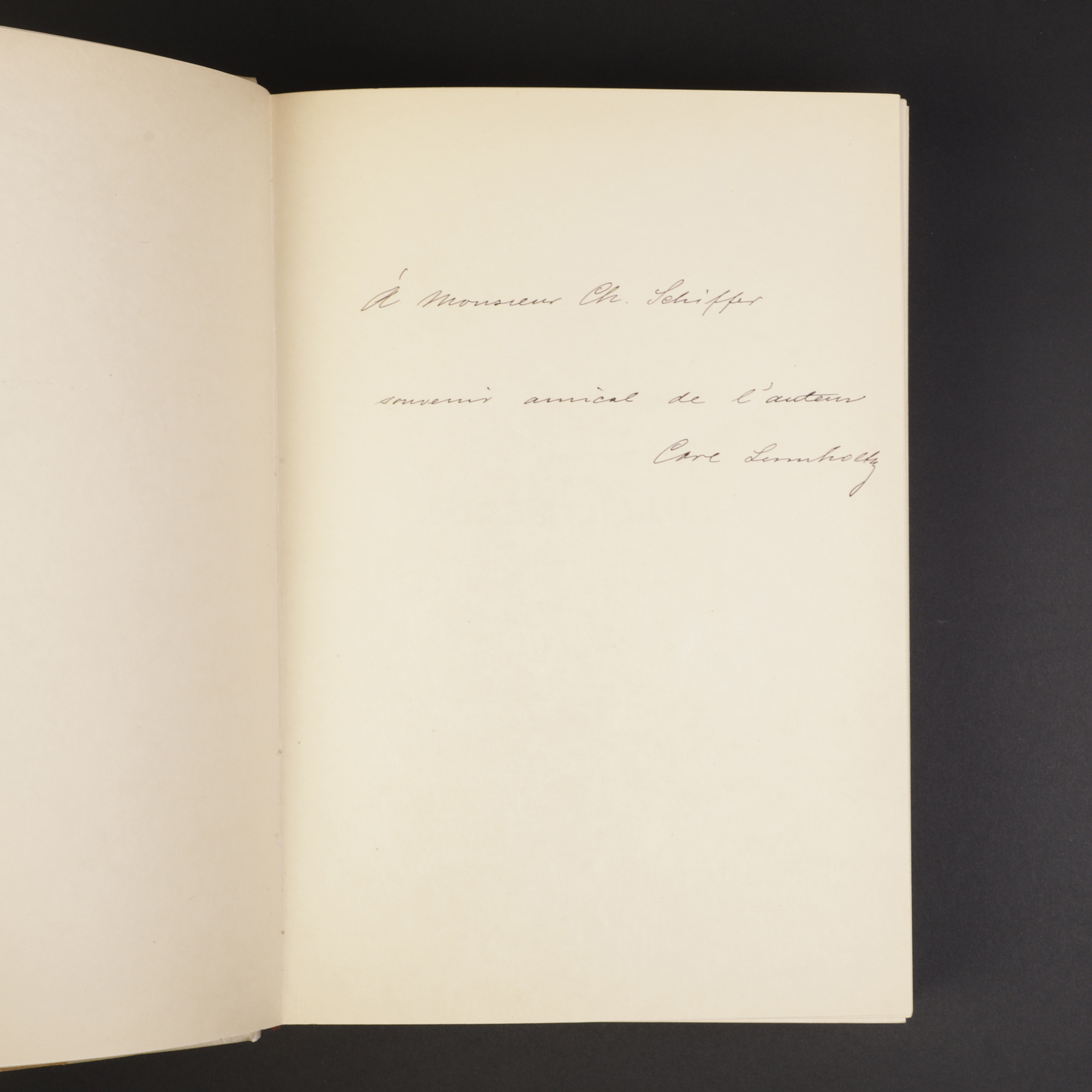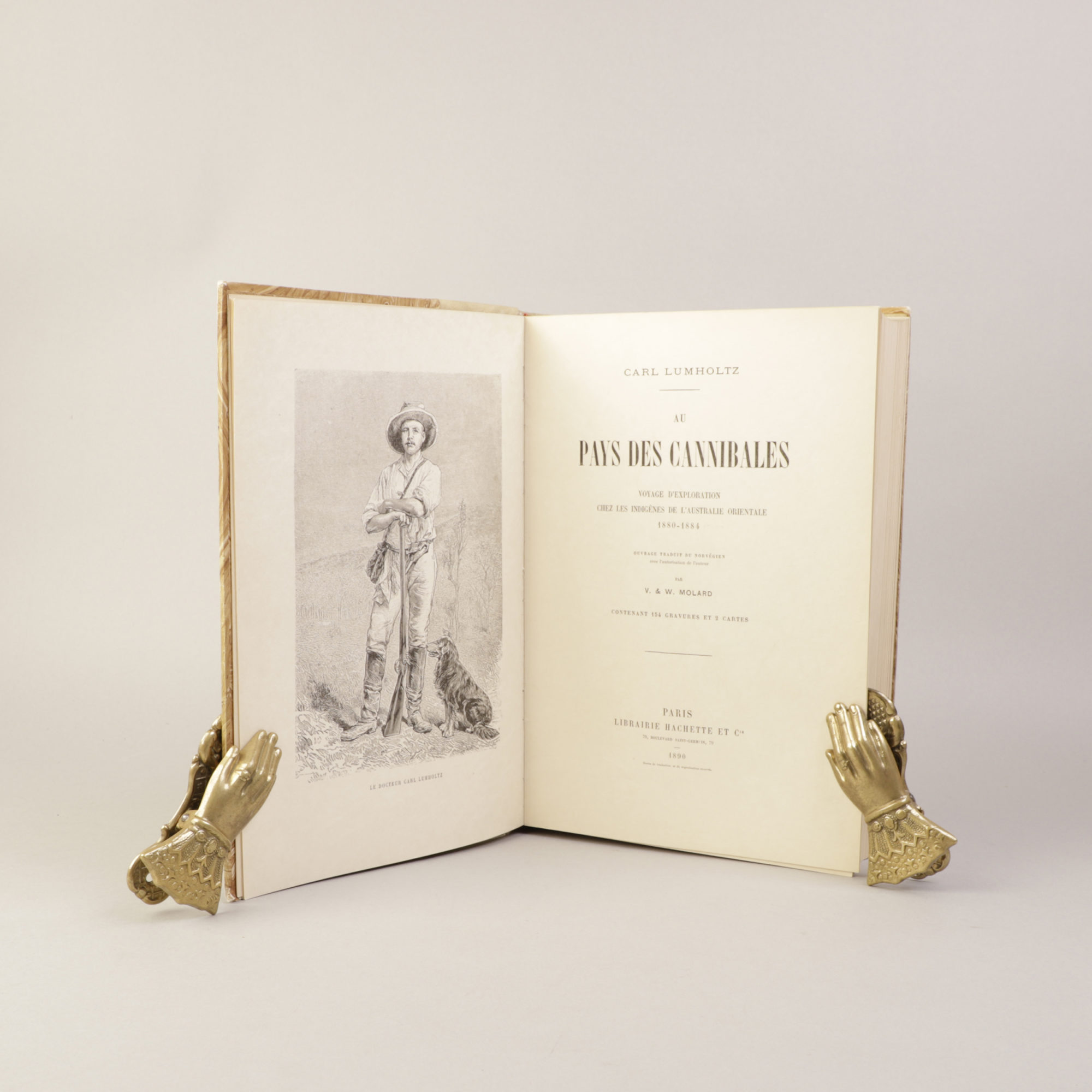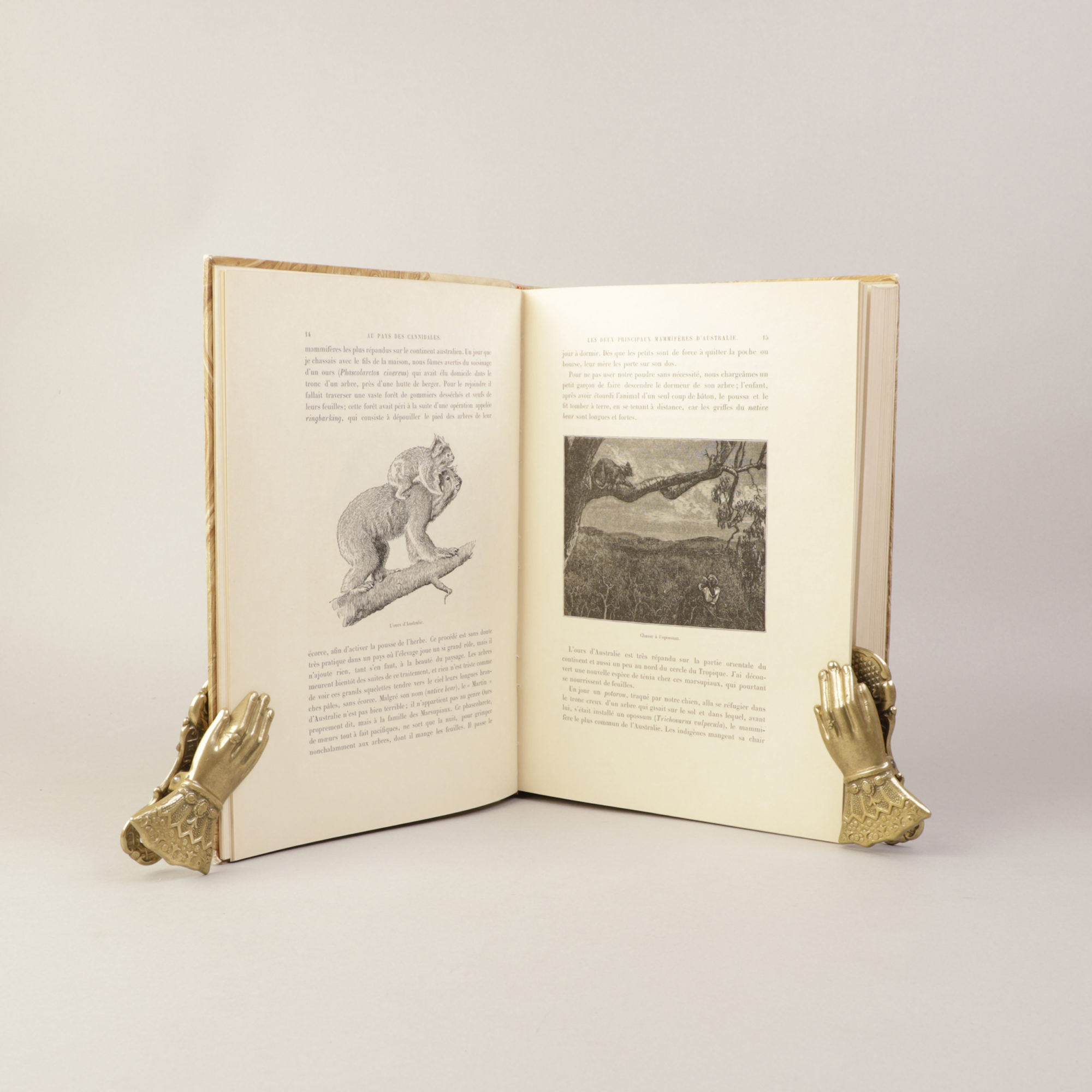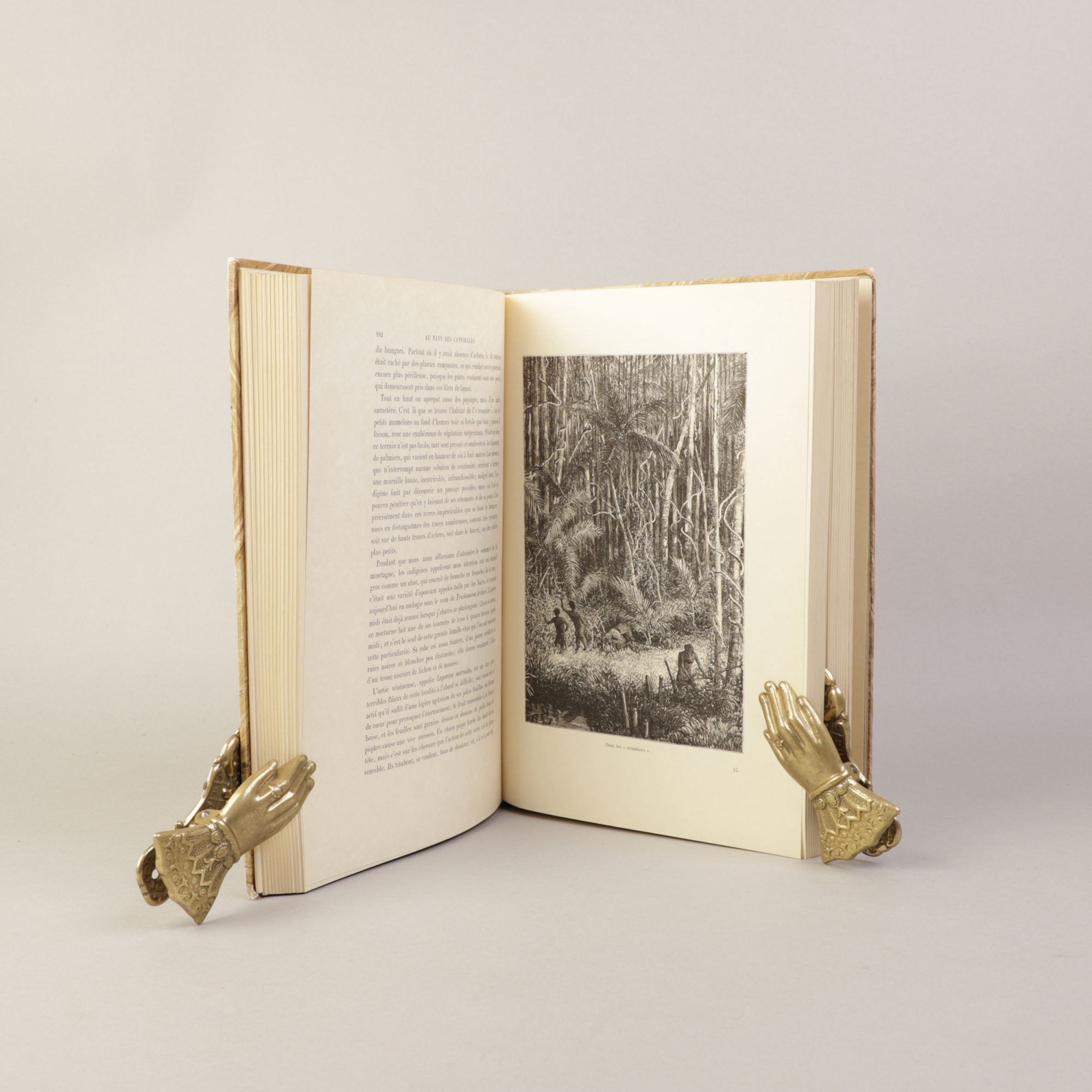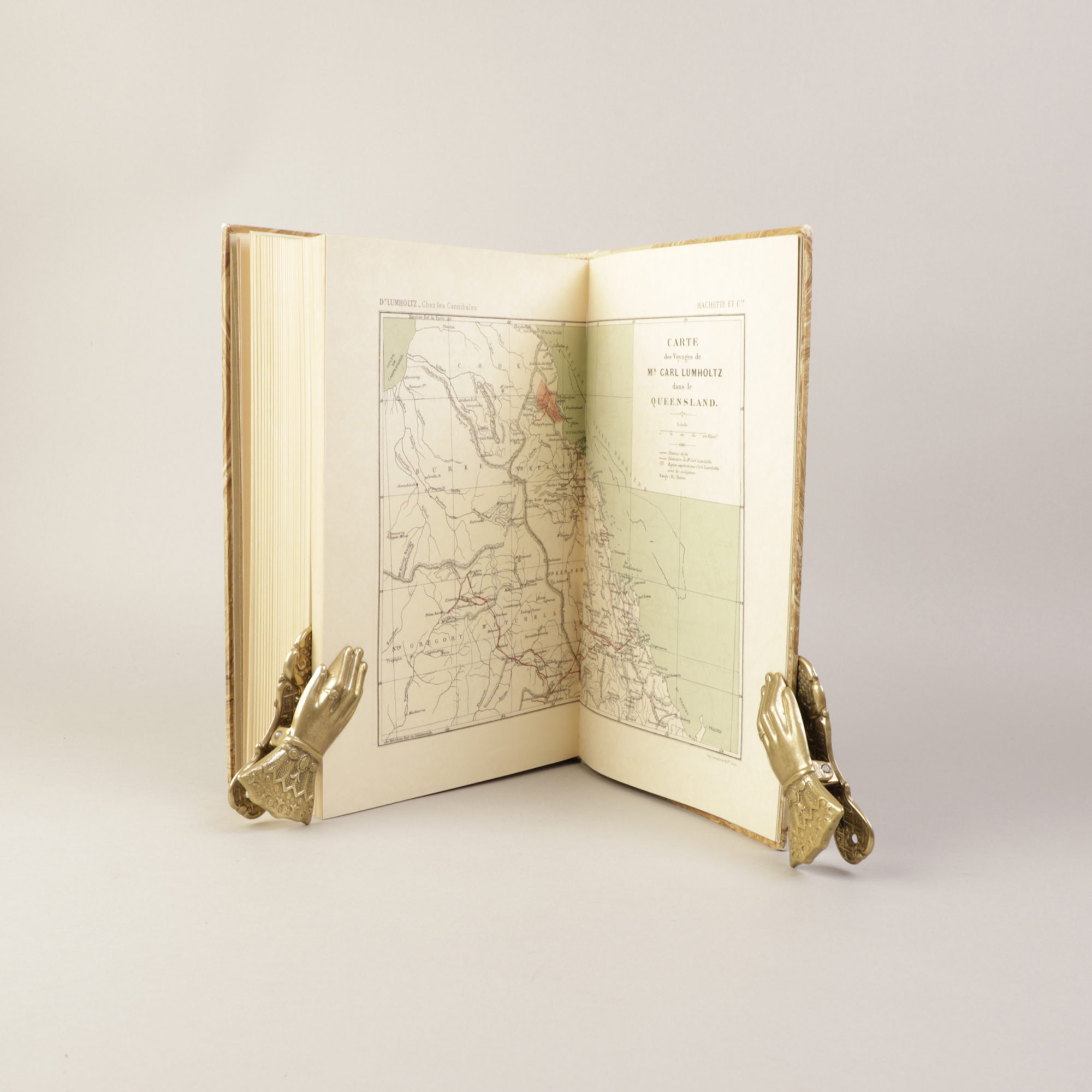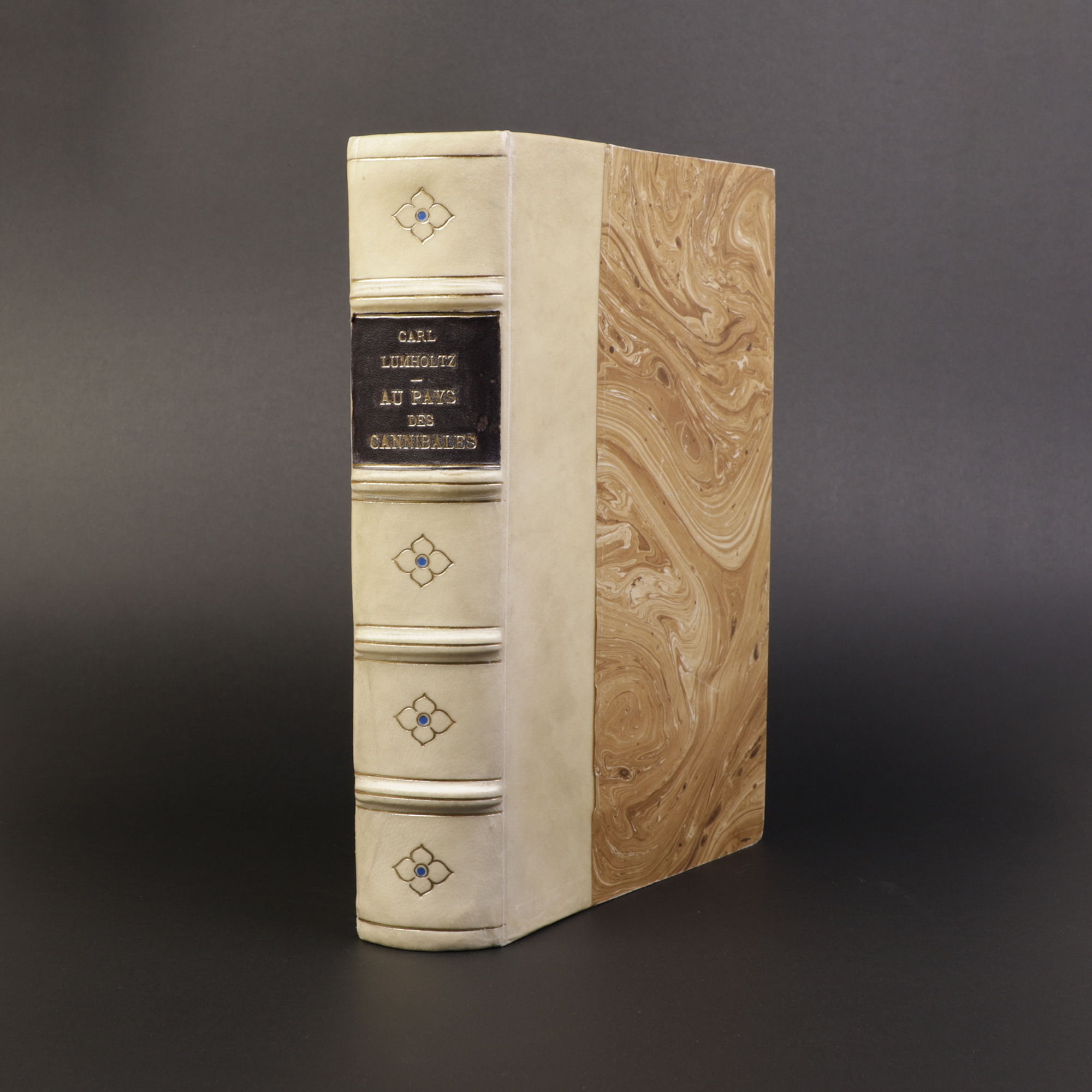
Au Pays des Cannibales. Voyage d’ Exploration chez les Indigènes de l’Australie Orientale 1880-1884.
Paris: Librairie Hachette et Cie, 1890. 4to. xii, 499pp. + 2-page coloured map. Vellum spine with 4 raised bands.
One of very few known copies on Japon paper, including illustrations and map. A fine and attractive copy.
INSCRIBED by Lumholtz: Á Monsieur Ch. Schiffer souvenir amical de l’Auteur Carl Lumholtz.
Carl Lumholtz [1851, Lillehammer – 1922, New York] is considered one of the great explorers from the last de-cades of the 19th century and the beginning of the 20th century. For almost 40 years he explored the jungles and desert regions of Australia, Mexico and Borneo, and he was internationally recognized as a naturalist, ethnographer, author, speaker and photographer. Lumholtz grew up in Lillehammer, where his father was a company commander in the infantry. In 1869, he became a student at Lillehammer School and, in accordance with his father’s wishes, began to study theology. Having completed his degree as a theologian in 1876, he worked for two years as a house teacher for farm owner Marentius Thams in Orkdal. But his interests lay closer to the natural sciences, and with financial support from the natural his-tory museums in Kristiania, he went by boat to Australia in 1880 to collect animals and plants. For four years he explored little-known areas of Queensland and identified several new mammals. A tree kangaroo (Dendrolagus Lumholtzii) has been named after him. His efforts were an important contribution to building up the collections at the university’s zoological museum at Tøyen. Lumholtz became interested in the way of life of the Australian aborigines. As the first European, he lived with a minimum of equipment with the Australian hunters and gatherers in the tropical rainforest at the Herbert River in Queensland, where like them he lived in small huts and under wood shelters. Lumholtz won their respect by kindness and gifts, but also by demonstrating his firearms. He was im-pressed by their ability to live in harmony with nature. The natives became his friends, but also his enemies. Through his account, they are transformed from interesting objects of study, which he views prejudicedly, into fellow human beings, and he becomes very critical of how the colonists treated them. The account of his stay in Australia was presented in the book Among Cannibals, published in 1888. In 1991, Lumholtz had a national park named after him at the Herbert River in Queensland, Australia. Source: Arve Sørum: SNL
